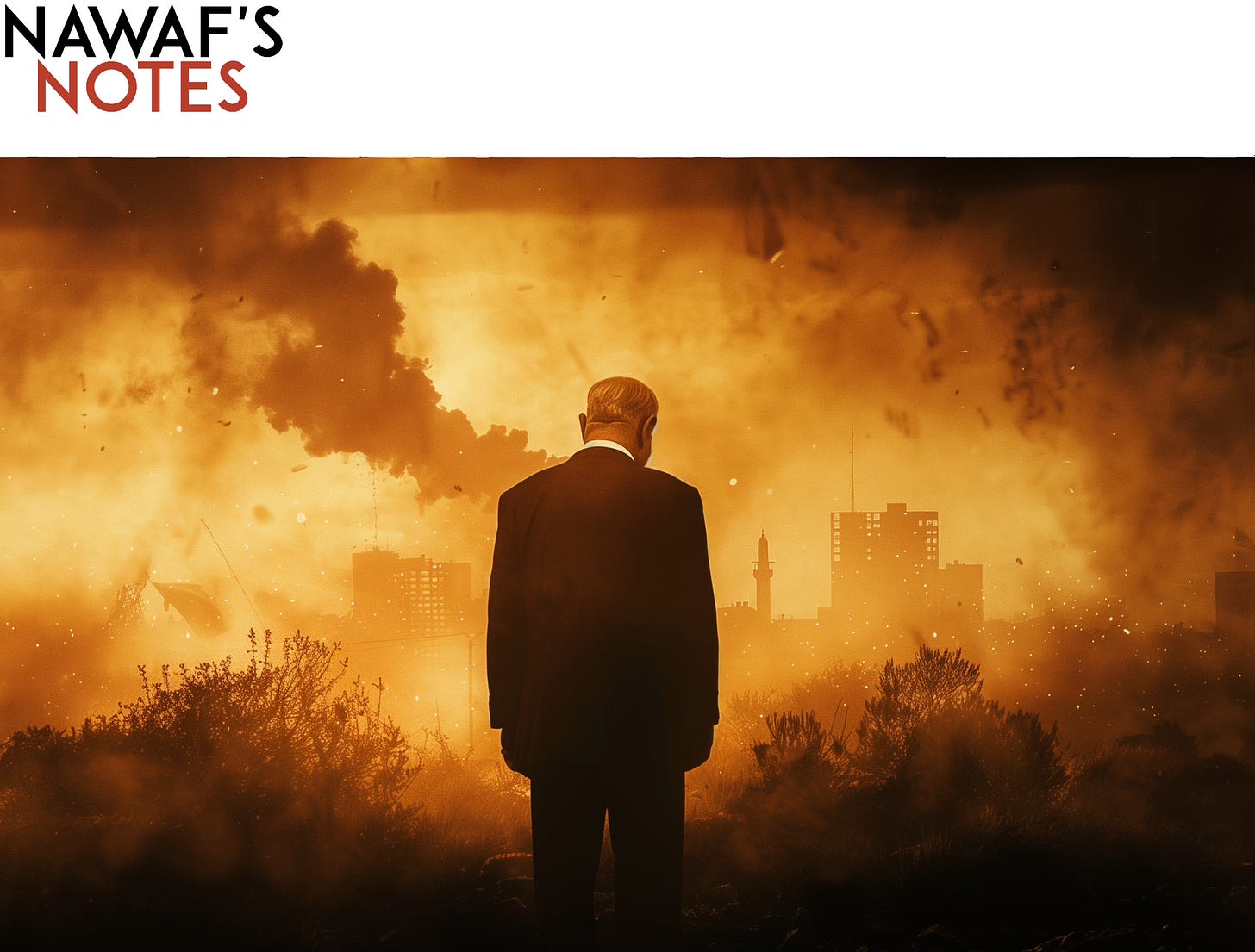Israel’s Last Chance: The World Must Engage Beyond Netanyahu
The Tragedy of Gaza and the Path Forward.
The following is based on the author’s original Arabic article published in Qatar’s Al-Raya Newspaper on August 21, 2024, 1…
The escalating violence in Gaza, now claiming over 40,000 lives, has thrust the international community into a moment of reckoning. As the death toll mounts, the urgency for effective diplomatic intervention has never been greater. U.S. Secretary of State Antony Blinken’s recent visit to Israel, part of a broader diplomatic effort to secure a ceasefire and facilitate the release of hostages, faces formidable obstacles. Chief among them is the intransigence of Israeli Prime Minister Benjamin Netanyahu. His refusal to make necessary concessions for peace raises a critical question: If Netanyahu cannot act as an honest broker, should the international community look beyond him to engage directly with other elements of Israeli society?
Netanyahu’s pursuit of "complete victory" and his outright rejection of a permanent ceasefire are symptomatic of a military-first mentality that has long dominated Israeli decision-making. Under the guise of security, Israel's aggressive policies have led to indiscriminate violence, blurring the line between combatants and civilians. The resulting bloodshed is a direct consequence of a leadership that equates military might with security, ignoring the fundamental rights of Palestinians and showing a disturbing indifference to international condemnation.
Understanding why Netanyahu’s hardline approach persists is essential. Domestically, Netanyahu remains bolstered by a coalition of right-wing factions and a public increasingly skeptical of diplomatic solutions. His rhetoric of uncompromising security resonates with a populace conditioned by decades of conflict. Yet, as the violence in Gaza continues unabated, it becomes increasingly clear that Netanyahu's strategy is not leading to sustainable security but rather perpetuating a cycle of violence that threatens both Israelis and Palestinians.
At this critical juncture, Qatar has emerged as a pivotal player in the effort to broker peace. As a key mediator, Qatar has worked closely with the United States and Egypt, not as a partisan actor, but as a stabilizing force in a region beset by tension. Qatar’s mediation efforts have focused on securing a ceasefire, lifting the suffocating blockade on Gaza, ensuring the protection of civilians, and negotiating the release of hostages. However, even with Qatar’s diplomatic finesse, one must ask: Can these efforts succeed if Netanyahu remains an unreliable partner in the peace process?
Qatar’s role as a mediator, while crucial, is fraught with complexity. Balancing the immediate humanitarian needs with the longer-term goal of regional stability requires more than just diplomatic skill—it demands confronting uncomfortable truths. If Netanyahu continues to obstruct peace efforts, the international community must consider bypassing him altogether. Engaging directly with other elements of Israeli society—civil society organizations, opposition leaders, and influential voices within the military and security establishments—could offer a new pathway to peace.
These groups, diverse in their perspectives, share a common interest in securing Israel’s future, not through endless conflict, but through meaningful engagement with the realities on the ground. For instance, civil society organizations within Israel have long advocated for a more nuanced approach to security—one that includes the rights and dignity of Palestinians. Similarly, there are influential voices within Israel’s military and intelligence communities who understand that true security cannot be achieved through force alone. Engaging these elements could provide the international community with a more viable partner in the quest for peace.
The United States, despite its criticisms of Israeli actions, remains a crucial partner in these diplomatic efforts. Blinken’s visit to Israel was intended to bridge the gap between Israel's security needs and what the international community recognizes as necessary steps toward peace. However, if Netanyahu’s government continues to reject compromise, the U.S. and its allies must rethink their approach. Should military aid be contingent on progress toward peace? Could greater support be given to grassroots peace initiatives within Israel? These are the questions that must now be asked.
Current diplomatic efforts are fixated on key issues such as control over the Philadelphi Corridor along the Gaza-Egypt border, the right of displaced Palestinians to return to their homes, and the conditions under which hostages might be released. These issues highlight the profound complexity of the conflict, where national, regional, and international interests intersect. The challenges are formidable, but they are not insurmountable—if the international community is willing to broaden its engagement beyond Netanyahu’s government.
Final Note: A Call for Broader Engagement…
The path to peace in Gaza, and indeed the broader Israeli-Palestinian conflict, may not lie solely with Netanyahu’s government. While his administration continues to assert its dominance through military means, there are voices within Israel that seek a different future—one built on dialogue, coexistence, and mutual recognition. Engaging these voices could provide the international community with new avenues for promoting peace, reducing tensions, and ultimately, achieving a lasting resolution.
Israel must reassess its approach, recognizing that military might alone will not secure the lasting peace and security it desires. Conversely, the international community, particularly the United States, must continue to pressure all parties to adhere to international law and respect human rights. But beyond this, they must be prepared to engage directly with the broader Israeli society, recognizing that true peace may require a shift away from the hardline policies that have defined Israel’s leadership under Netanyahu.
The stakes could not be higher. If Netanyahu proves to be an obstacle to peace, the world cannot afford to wait for a change in leadership. It must instead seek out and support the elements within Israeli society committed to a peaceful and just resolution of the conflict. Only by broadening the scope of engagement can the international community turn the current tragedy into an opportunity for lasting peace, ensuring a better future for both Israelis and Palestinians alike.
"Those who do not lay down their arms remain prisoners of war."






